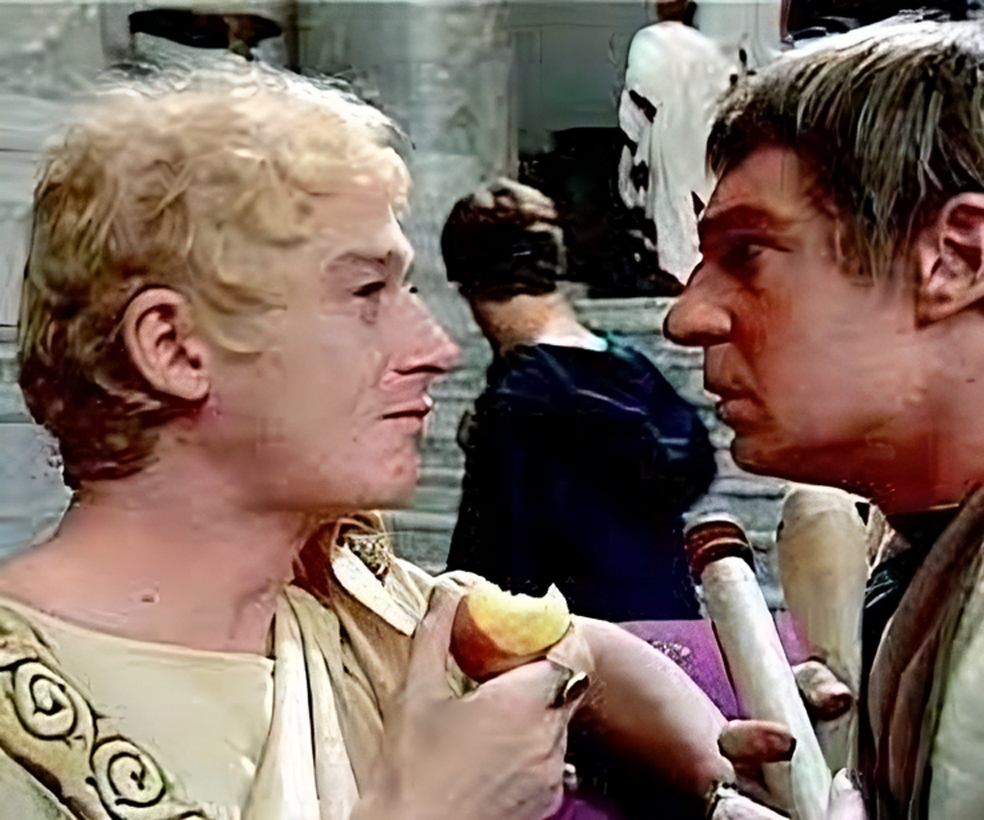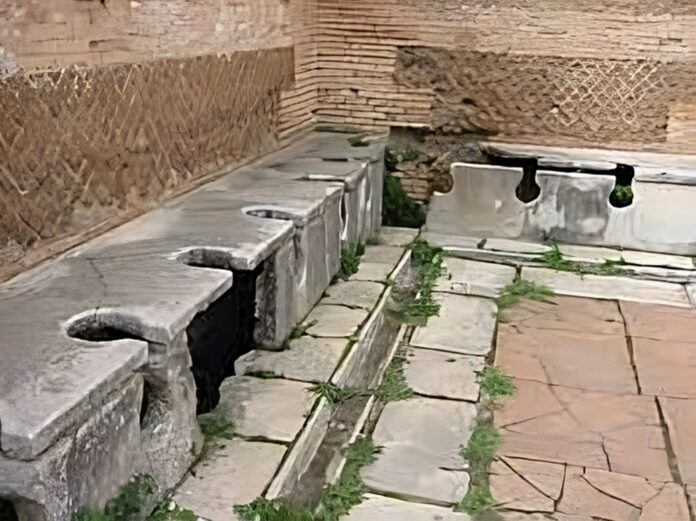The ancient Romans were known for their advanced engineering and sanitation systems, but did you know that they also used urine to make toothpaste? Urine was a valuable resource for the Romans, and it was recycled in various ways. In this article, we will explore how the Romans used urine to make toothpaste and other hygiene products. We will also look at some of the ingredients used in Roman toothpastes and how they compared to modern-day products. Finally, we will discuss why recycling urine was so important to the Roman people.
How the Ancient Romans Used Urine to Create Toothpaste?
The ancient Romans had some pretty creative ways of keeping their teeth clean and healthy. Believe it or not, one of the most popular methods was to use urine! Yes, you read that right – urine!
This unique toothpaste was made by combining human urine with ash and chalk. The ash acted as an abrasive to scrub away plaque and food particles, while the chalk gave the paste a pleasant texture. The ammonia in the urine helped to kill bacteria and leave a minty-fresh taste in your mouth.
The ancient Romans were so fond of this toothpaste that they even wrote about it in their literature. Pliny the Elder described it as “a remarkable remedy for loosening teeth” in his Natural History. He also noted that it could be used to whiten teeth and freshen breath.
Although this may sound like an odd way to keep your pearly whites clean, it actually worked quite well! Urine contains minerals such as calcium phosphate which can help strengthen enamel and prevent cavities. Plus, its antiseptic properties help reduce inflammation and fight off gum disease.
So next time you brush your teeth, take a moment to appreciate how far we’ve come since the days of Roman toothpaste!
The Chemistry Behind Roman Urine-Based Toothpaste
Ah, the wonders of ancient Roman civilization! They had a knack for innovation and their inventions still amaze us today. One of the most intriguing is their use of urine-based toothpaste. Yes, you read that right – urine!
But don’t worry – it’s not as gross as it sounds. In fact, it was quite effective in cleaning teeth and preventing cavities. So how did they do it? Let’s take a closer look at the chemistry behind this unusual toothpaste.
First off, let’s talk about the main ingredient: urine. Urine contains ammonia, which has powerful antibacterial properties. This means that when used on teeth, it can help to kill off bacteria and prevent plaque buildup. It also helps to remove surface stains from your teeth and leave them looking brighter and whiter.
In addition to ammonia, Roman urine-based toothpaste also contained other ingredients such as sodium bicarbonate (baking soda), chalk powder, crushed bones, and even pumice stone for extra scrubbing power. All these ingredients combined created an abrasive paste that was able to effectively clean teeth without damaging them or causing any discomfort.
So there you have it – the chemistry behind Roman urine-based toothpaste! While we may not be using this method today, we can certainly appreciate its effectiveness and admire the ingenuity of our ancestors!
What Ingredients Were Used in Roman Urine-Based Toothpaste?
Roman urine-based toothpaste was a surprisingly effective way to keep teeth clean and healthy! It was made with a combination of ingredients that may sound strange today, but were actually quite common in ancient Rome. The main ingredient was, of course, urine! This was mixed with ash from burnt plants and bark, as well as pumice stone for scrubbing. To give it a pleasant flavor, the Romans also added aromatic herbs like mint and thyme. Finally, they would add honey or salt to make the paste more palatable. All these ingredients combined to create an effective and surprisingly tasty toothpaste that kept Roman smiles shining bright!

Examining the History of Roman Hygiene Practices
The ancient Romans had a unique approach to hygiene that was far ahead of its time. From their use of public baths to their advanced plumbing systems, the Romans truly understood the importance of keeping clean.
Roman baths were an integral part of daily life and were seen as a social gathering place. People would come together to bathe, relax, and even engage in philosophical conversations. The baths themselves were incredibly luxurious, with heated pools, massage rooms, and even libraries!
The Romans also had advanced plumbing systems that allowed them to bring fresh water into their homes. This allowed them to easily access clean water for bathing and washing dishes. In addition, the Romans used a variety of soaps and oils to keep their skin soft and healthy.
The Romans also practiced dental hygiene by using toothpicks made from twigs or bone. They also believed in the power of herbs for healing purposes and would often make teas or poultices from various plants to treat illnesses or wounds.
It’s clear that the ancient Romans had an impressive understanding of hygiene practices that was far ahead of its time. From their use of public baths to their advanced plumbing systems, they truly understood the importance of keeping clean!
How Did Ancient Romans Dispose of Their Used Urine?
The ancient Romans had a unique way of disposing of their used urine – they would use it to make a type of mortar called ‘pugnus’. This mortar was made by mixing the urine with sand, lime, and water. It was then used to build structures such as aqueducts, walls, and even roads! The Romans believed that the ammonia in the urine acted as a natural preservative for the mortar, helping it to last longer.
It’s amazing to think that something so simple could be used in such an ingenious way! The Romans were certainly ahead of their time when it came to finding creative solutions to everyday problems. They were also incredibly resourceful; instead of throwing away their waste, they found ways to put it to good use.
So next time you’re walking around Rome and you come across an old aqueduct or wall, take a moment to appreciate the ingenuity of those who came before us – and remember that somewhere in there is probably some ancient Roman pee!
Exploring Modern Alternatives to Roman Urine-Based Toothpaste
Are you looking for a modern alternative to Roman urine-based toothpaste? If so, you’ve come to the right place!
Today, there are many exciting and innovative options available that can help keep your teeth clean and healthy. From natural toothpastes made with ingredients like baking soda and coconut oil to herbal formulas containing tea tree oil and aloe vera, there’s something for everyone.
For those who want a more traditional experience, there are even toothpastes made with ingredients like charcoal and clay that provide a deep clean without the unpleasant smell of urine.
If you’re looking for something a bit more fun, why not try one of the new flavors available? From fruity blends like strawberry-kiwi to minty varieties like peppermint-spearmint, there’s sure to be something that will make brushing your teeth an enjoyable experience.
No matter what type of toothpaste you choose, it’s important to remember that regular brushing is key to keeping your teeth healthy. So why not ditch the old Roman urine-based formula and explore some of the modern alternatives today?
Conclusion
The recycling of urine into toothpaste by the Romans is an interesting example of their resourcefulness and ingenuity. Although it may seem strange to us today, it was a practical solution to the problem of having access to a safe and effective form of oral hygiene. While we now have more advanced methods for keeping our teeth clean, the Roman practice of recycling urine into toothpaste serves as a reminder that humans have always been capable of finding creative solutions to everyday problems.




